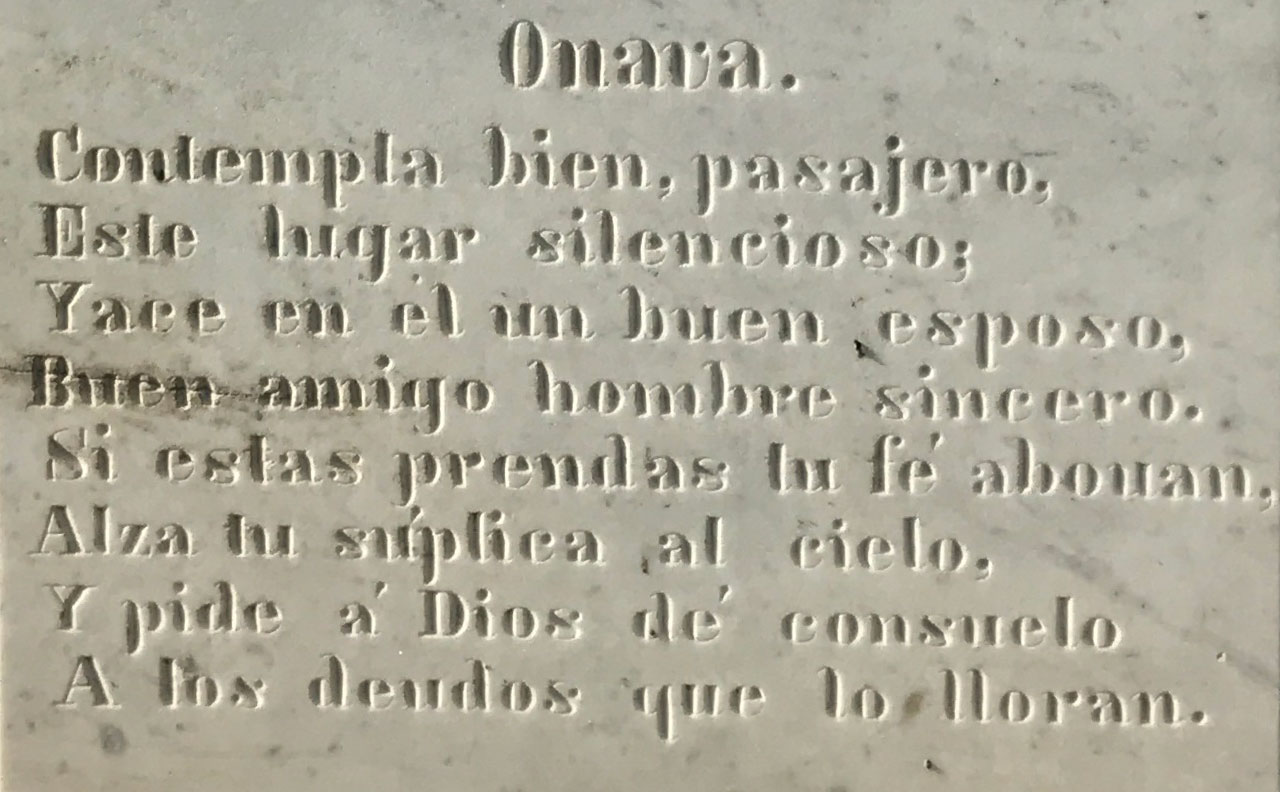I'm translating a Spanish gravestone from 1865 and I am stuck on one word. The inscription includes a verse or prayer that begins with the word "Onava." I can't find this word in any of my Spanish dictionaries. I've looked very closely at the inscription and I am confident that the spelling is "Onava." I'm wondering if it is a misspelling of "Orava" which could be a phonetic spelling of "Oraba" meaning "Prayed." However, I'm wondering if it could be an archaic Spanish word and my (very basic) Spanish is limited to the contemporary language. Google came up with nothing. Does anyone know?
The full text of the inscription, with my translation:
Onava. [???]
Contempla bien, pasajero, [Consider well, passerby]
Este lugar silencioso; [This silent place]
Yace en él un buen esposo, [Here lies a good husband,]
Buen amigo hombre sincero. [Good friend, sincere man.]
Si estas prendas tu fé abouan, [If these items buoy your faith]
Alza tu súplica al cielo. [Raise your prayers to the sky]
Y pide á Dios dé consuelo [And ask God that he may give comfort]
A los deudos que lo lloran. [to the bereaved who weep for him.]
I'm also unsure about the word "prendas" - the most common meaning is "garment" but I think it context it must have the secondary meaning of items that are given as a pledge.
I think that "abouan" must be an older spelling of "aboyan" which would mean "float" (with a buoy) so I translated it as "buoy".
Muchas gracias!
Note: You can see the complete gravestone here.

